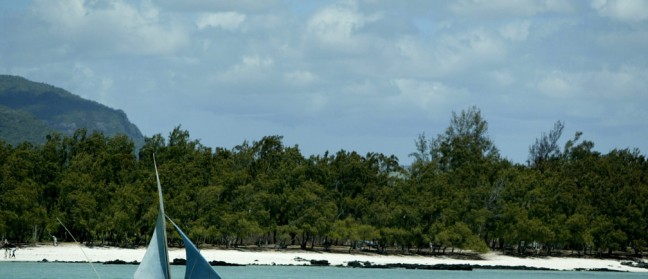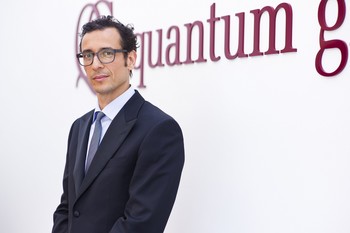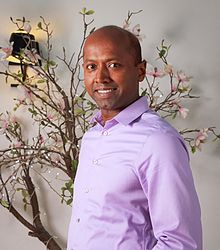
Mauritius is only 65km long, 45km wide and 2,000 km away from Africa. Yet there are strong indicators that this small island in the Indian Ocean may be the ideal gateway to Africa. In a period of great economic uncertainty right across the world and the collapse of commodity and extractives prices, investors need to work harder to find strong returns. We need to analyze what it is about Mauritius that makes it stand apart.
The island’s reputation is an important factor. For decades, Mauritius has built long-standing relationships with key African and international bodies, including the Southern African Development Community, the World Trade Organization and the Commonwealth of Nations. The country has always been viewed as particularly stable, having adopted a parliamentary democracy and an independent judiciary. The Heritage Foundation states that Mauritius has a non-discriminatory, and transparent legal system in Africa.
Mauritius has multiple bilateral trade agreements across Africa, which means that global investors, traders and private equity companies gain preferential access to a number of key African markets and hundreds of millions of customers. It holds treaties with 43 countries and is politically and economically stable. That stability comes from full political accountability, free and fair elections and a well-regulated financial services sector. The Financial Services Commission (FSC) in Mauritius is well-respected and on par with international standards of governance and compliance. It is also a member of the International Criminal Court. Stability and accountability are however only part of the story. Mauritius ranks 1st on the Mo Ibrahim index of African governance.
Mauritius also boasts sustained economic growth over a long period of time. Per capita GDP grew from $200 in 1968 to over $7,700 today and its GDP grew by an annual average of 5.1% between 1977 and 2009. It has been consistently ranked by the World Bank as being the easiest country to do business across the entire region – and it ranks 32 out of 189 global economies in the World Bank’s Doing Business 2016 paper. Mauritius also ranks 1st amongst African countries on the Global Competitiveness Index and the 2015 Index of Economic Freedom.
The infrastructure is on par with international standards. Business Parks of Mauritius Ltd (BPML) has developed high quality business and industrial parks in strategic locations and at highly competitive prices. BPML was incorporated in 2001 in order to place Information and Communications Technology (ICT) at the center of the Mauritian economy. Over the past 15 years it has created physical infrastructure projects including Ebene Cybercity, Rose Belle Business Park and Solitude Business Park. All these, coupled with several important financial incentives, have attracted many international and local banks, to choose Mauritius as a regional hub.
There are no foreign exchange controls and foreign companies enjoying free repatriation of profits. It has also eliminated double-taxation with several important African countries, signing tax treaties that help Mauritian-based firms to trade across the region. It boasts one of the most advantageous jurisdictions for tax structuring in Africa, offering a tax-free environment for investing capital and zero tax on interest gained at banks in Mauritius. All of this means that private equity firms are able to offer investors highly tax efficient earnings in one of the region’s most transparent and well-run democracies, which is why global PE companies such as Quantum Global have registered multi-billion dollar funds on the island. The firm’s newly established office and team of highly experienced PE professionals, is the hub for the seven registered funds worth $3 billion offering investors optimal returns in a very well governed and risk-assessed environment.
Investors should also recognize that Mauritius is a country that has never shied away from reforms that support social development – an important ingredient in the development of a skilled workforce and a knowledge-based economy. The country’s reliance on its traditional export – sugar cane – fell from 90% in 1968 to 3.5% now – a shining example of success in moving away from reliance on one primary industry. Historically, textiles and the manufacture of garments, financial and business services and tourism have been the backbone of the economy for many years.
The small and medium-sized enterprises sector is growing, providing new jobs and supporting social mobility. World Bank figures tell us that the growth in Mauritius looks sustainable too – it forecasts steady YOY GDP growth of around 4% per year up to 2018.
This is a nation that has all of the key ingredients for investor confidence: economic diversity, a highly completive tax regime, investor-friendly regional trade and tax arrangements – all underpinned by a working democracy, independent judiciary and a global reputation for transparency. During such unpredictable times, Mauritius is an island of stability and reliability.
MA in Management, University of Fribourg, Switzerland. Began career as management consultant. Private investor and philanthropist. 2003, founded the private Quantum  Global Group, Switzerland, which works in asset management, private wealth management for high net worth individuals and corporate advisory. Quantum advises governments, central banks and sovereign wealth funds and other institutional investors. 2008, founded Banco Kwanza Invest, Angola’s first investment bank. Philanthropic work centred on the African Innovation Foundation, an organization founded to drive African-led development through fostering innovation, particularly among youth. Member of the Advisory Board, Official Monetary and Financial Institutions Forum (OMFIF). Member of the Board, Zurich.Minds, a community of scientists, entrepreneurs and business leaders. Interest: social and economic development of sub-Saharan African markets
Global Group, Switzerland, which works in asset management, private wealth management for high net worth individuals and corporate advisory. Quantum advises governments, central banks and sovereign wealth funds and other institutional investors. 2008, founded Banco Kwanza Invest, Angola’s first investment bank. Philanthropic work centred on the African Innovation Foundation, an organization founded to drive African-led development through fostering innovation, particularly among youth. Member of the Advisory Board, Official Monetary and Financial Institutions Forum (OMFIF). Member of the Board, Zurich.Minds, a community of scientists, entrepreneurs and business leaders. Interest: social and economic development of sub-Saharan African markets

 Valley. He is former Vice-President at Forrester Research, a leading US-based technology research and consulting firm. At Forrester, he investigated how globalised innovation – with the rise of India and China as both a source and market for innovations – is driving new market structures and organizational models called « Global Innovation Networks ». During his tenure at Forrester, he advised senior executives around the world on technology-enabled best practices to drive collaborative innovation, global supply chain integration, and proactive customer service. He served as the Executive Director of the Centre for India & Global Business at Judge Business School, University of Cambridge, where Jaideep Prabhu was the director.
Valley. He is former Vice-President at Forrester Research, a leading US-based technology research and consulting firm. At Forrester, he investigated how globalised innovation – with the rise of India and China as both a source and market for innovations – is driving new market structures and organizational models called « Global Innovation Networks ». During his tenure at Forrester, he advised senior executives around the world on technology-enabled best practices to drive collaborative innovation, global supply chain integration, and proactive customer service. He served as the Executive Director of the Centre for India & Global Business at Judge Business School, University of Cambridge, where Jaideep Prabhu was the director.